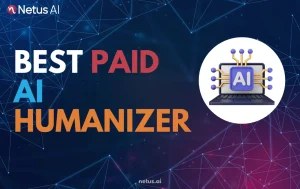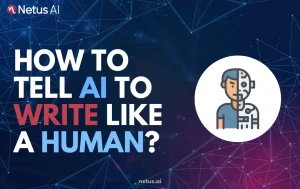
Why Students Are Getting Flagged Even When Writing Honestly | NetusAI
Learn how students can use AI tools for writing and research without getting flagged by AI detectors. Get tips on humanizing content and staying academically safe.

Content writer and editor for Netus.AI
site:netus.ai , academic misconduct definition , academic misconduct meaning
What is Academic Misconduct. Academic misconduct encompasses various actions that breach university or college policies, enabling students to gain an unfair academic advantage. Such misconduct includes contract cheating, collusion, plagiarism, and fabrication of data. To ensure the integrity of the academic community, students must adhere to established rules and refrain from engaging in dishonest behaviors.
Universities and institutes work diligently to prevent academic dishonesty, employing both institutional policies and honor codes to maintain high standards. Students, particularly international enrollees, must familiarize themselves with these guidelines and policies to uphold both personal and institutional academic integrity in an increasingly globalized and competitive environment.
Plagiarism goes beyond simply copying or using someone else’s ideas, concepts, or writing. It involves taking and misrepresenting another’s work as your own. In academic settings, particularly at universities, all members engaged in scholarly work must uphold intellectual honesty and transparency as part of their ethical responsibilities.
Authors of journals, research papers, and articles deserve the proper recognition for their contributions. Engaging in contract cheating, falsifying data, displaying poor scholarship, or failing to properly cite and reference sources not only undermines the learning process but is also considered unethical. Such actions can lead to severe consequences down the line.
To maintain academic integrity, it is crucial not just to learn how to utilize the work of others but also to cite it correctly. This will prevent misunderstandings and ensure that you are not engaging in academic misconduct, such as plagiarism. In doing so, you will be upholding the fundamental principles of scholarly discourse and avoiding any potential pitfalls in your academic journey.
To maintain academic integrity, it is crucial to avoid plagiarism in scholarly work. Here are some tips to help prevent different types of plagiarism in academic papers:
By following these guidelines, you can promote academic honesty and contribute to the creation of high-quality, original work in your academic papers.
Academic misconduct can negatively affect a student’s integrity and work ethic. Frequently cheating during academic activities may lead to developing dishonest habits in their personal, social, and professional lives, causing harm to everyone associated with them.
Many higher education students find submitting non-plagiarized academic papers challenging and resort to deliberate or unintentional copying from the internet. Failing to provide proper citations and references results in cheating or plagiarism. If an evaluator or instructor does not utilize a plagiarism checker, they cannot accurately assess the student’s skills, performance, knowledge, or application, leading to awarding credentials to undeserving individuals. This can produce severe repercussions in the workplace.
When students participate in live projects sponsored by business organizations or government agencies, they are expected to submit original work. Any form of plagiarism, data fabrication, cheating, or falsification can result in sponsors canceling the projects and pursuing legal actions such as lawsuits, fines, and penalties against the educational institution.
To mitigate academic misconduct, students, teachers, and instructors should employ anti-plagiarism software when checking academic papers. This software identifies similarities and paraphrased content, providing a detailed report to ensure academic integrity is maintained.
The consequences of academic misconduct can vary depending on the nature and severity of the offense. Generally, these consequences can include:
Some common examples of academic misconduct include:
The four major types of academic dishonesty are:
In higher education, academic misconduct is generally defined as any activity that compromises the academic integrity of the institution or undermines the educational process. This includes, but is not limited to, cheating, plagiarism, fabrication, and collusion.
Some root causes of academic misconduct among students are:
Academic misconduct can significantly impact the integrity of research by:

Learn how students can use AI tools for writing and research without getting flagged by AI detectors. Get tips on humanizing content and staying academically safe.

Explore the best paid AI humanizer tools that deliver high-quality, undetectable content. Compare pricing, features, and accuracy to choose the right solution for your needs.

Looking for the best tools to make AI content undetectable? Explore top AI humanizers, bypass tools, and rewriting solutions to pass detectors and sound fully human.

Explore why AI content humanization is essential for SEO success. Learn how human-like rewrites can improve rankings, engagement, and trust with search engines.

Discover the best free AI humanizer tools to make your content sound natural and bypass AI detection. Compare features, pros, and limitations of top free options.

Learn how to prompt AI tools to write like a human. Discover techniques to improve tone, structure, and emotion in AI-generated content for better authenticity and SEO.
@ 2024 Netus AI.